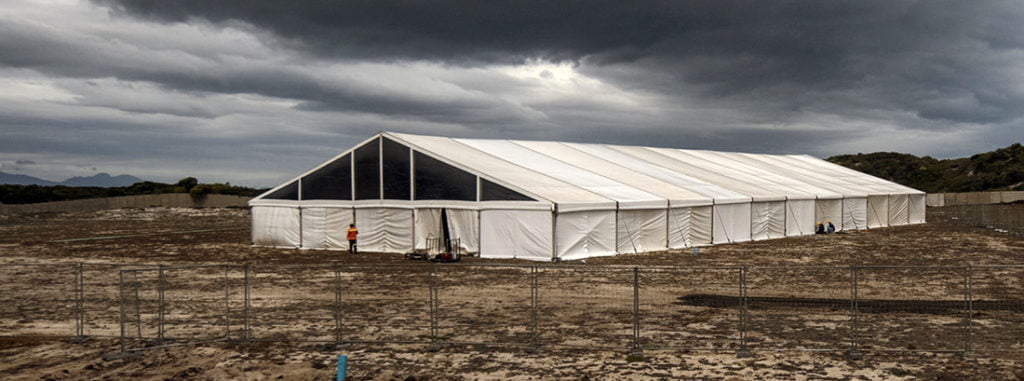NEWS | By Vincent Cruywagen | 9 June 2020
Judge Siraj Desai pointed out that the litigation was against a Chapter 9 institution and that it was unusual for an organ of state to seek an interdict against a constitutionally mandated guardian of democracy.
The City of Cape Town has abandoned an application in the Western Cape High Court challenging the appointment of monitors by the South African Human Rights Commission (SAHRC) to track the city’s Covid-19 policy and response with regard to the homeless and vulnerable groups.
The City brought the application against the SAHRC and 10 others, arguing that Covid-19 lockdown regulations had not permitted the SAHRC to appoint the monitors.
The City also alleged that the monitors had been disruptive and had distorted information about the Strandfontein temporary shelter for the homeless, established in March. The site housed 1,600 homeless people.
The application was abandoned on Tuesday 9 June in the Western Cape High Court during a virtual hearing by Judge Siraj Desai.
Advocate Norman Arendse, for the SAHRC, argued that the regulations should have been interpreted in line with the Constitution and that he had been ready on Tuesday to set out the meaning of “monitoring”.
The City’s U-turn had led to questions as to why the City would take the time and finances to draw up court papers criticising the monitors only to withdraw when evidence of this would be required, said Arendse.
Desai, in his opening remarks, pointed out that the litigation was against a Chapter 9 institution and that it was unusual for an organ of state to seek an interdict against a constitutionally-mandated guardian of democracy.
The judge asked the City to specifically address the question as to whether its litigation was in fact a strategic lawsuit against public participation (SLAPP) intending to silence the SAHRC.
He added the City had tried to circumscribe the core functions of the SAHRC.
Terms such as “misinformation” and “fake news” were often used to silence people with whom one differed, said Desai, citing US President Donald Trump as an example.
He asked the City to reflect on whether, in light of the withdrawal of the matter, it had embarked on a futile exercise in the first place.
The City argued that the need for the court action no longer existed as the temporary shelter had closed in May. It also questioned why the SAHRC had opted to engage the media before it had engaged with the City about the issue of monitors.
Arendse told the court that the application had been “designed to avoid accountability by the City of Cape Town”.
He added that it was “meritless” considering the requirements for an interdict.
“Monitoring is protected in the Constitution and the commission is not accountable to a local authority, but rather to Parliament,” said Arendse.
Meanwhile, counsel for the Amicus, the Women’s Legal Centre (WLC), highlighted that the City had not adhered to safety requirements to protect the needs of vulnerable groups at the shelter.
The WLC said that the monitoring at the Strandfontein site was an “absolute necessity” and remained so for any further site the City may set up.
SAHRC provincial commissioner Chris Nissen said: “We were entirely within our rights. The City wanted to circumvent the scrutiny of the alleged violation at the site reported by monitors. They blocked and barred monitors from entering the Strandfontein site.”
He said the City had gone to court “testing the constitutionality of Chapter 9 institutions by questioning the ability of the commission to carry out its mandate to accredit people to assist the commission”.
Section 11 of the SAHRC Act made provision for a call on people with expertise to advise the commission.
One of the 10 respondents, Jared Sacks, said the City’s case had no merit.
“We as monitors are happy and we have been vindicated. From the onset, we had a job to observe and report human rights violations. The City wanted to silence us. They made it difficult for us to report, but at the end, we had substantial reports which were part of the court documents,” Sacks said.
A total of 55 organisations from civil society rallied behind the SAHRC and the 10 fellow respondents and said, in a statement, that the interdict by the City was an attempt to undermine the constitutional powers of the SAHRC.
“Chapter 9 institutions are constitutionally mandated to provide oversight in all state undertakings to ensure that the rights and dignity of all those living in South Africa are observed.”
The organisations added that it was “entirely within reason and correct that our human rights monitors presented themselves at all sites and in all situations to monitor access to rights and dignity of any and all persons living in the country, especially those most socioeconomically vulnerable”.
Tauriq Jenkins, another monitor, said the court case was about “defending who we are as South Africans”.
The court is yet to make a ruling with regard to the cost order. Desai said that in order to make a fair ruling the court would need to take the merits of the matter into account.
Judgment has been reserved and counsel was requested to make a submission to the court by June 14. DM


